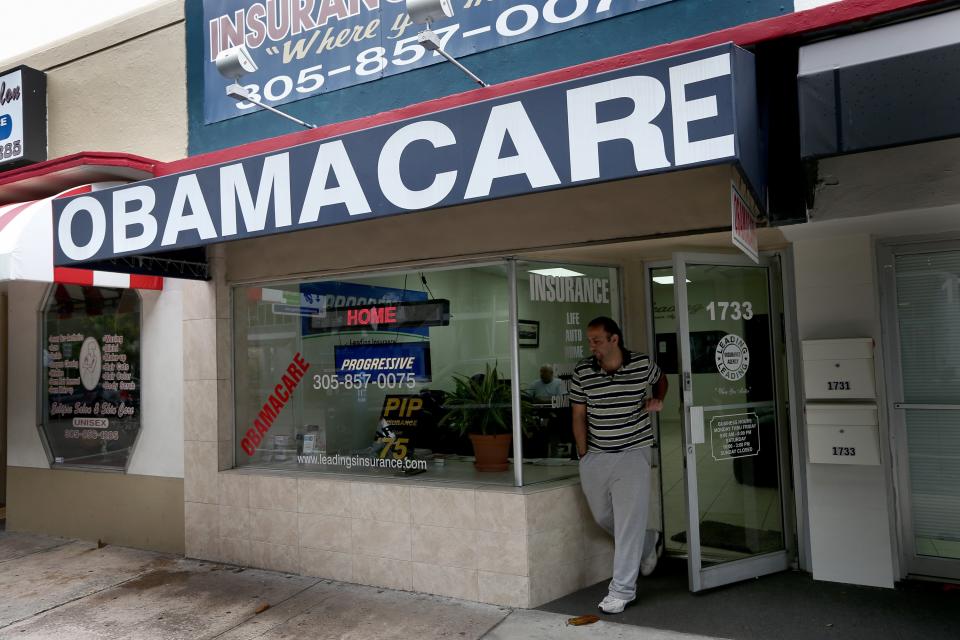Next problem for Obamacare: deadbeat enrollees

The big question about Obamacare this year is whether enough people will enroll to make the controversial health-reform plan viable.
Another important question has been overlooked, until now: Will people pay their premiums once they enroll? The unsettling answer appears to be maybe not.
The New York Times has discovered that only about 80% of people purchasing health insurance through the federal online marketplace or a similar state-run exchange paid their first month’s premium. There’s no single source of such data, but the Times canvassed insurers participating in the program, such as Aetna (AET), Wellpoint (WLP), Humana (HUM) and Blue Shield of California. All said that the first-month payment rate ranged from 75% to 80% or so, far lower than for typical plans. If enrollees don't pay the first month's premium, their insurance never goes into effect.
That doesn’t mean, however, that one-fifth of the people signing up for Obamacare are blatantly refusing to pay. Technical problems with some of the exchange websites may have left people enrolled in an insurance plan without knowing it. Some may never have received a bill or confirmation of their enrollment. Others may have unwittingly signed up for two different policies, while paying for only one.
Still, it’s possible the deadbeat factor could turn out to be another unexpected problem for the troubled health reform program, which by definition is targeted at people who don’t have health insurance, and therefore may never have paid a premium. Collection efforts by insurance companies seem to make a difference: Blue Cross and Blue Shield of Minnesota, which has aggressively contacted new customers and reminded them to pay their bills, told the Times that 95% of people who had enrolled under Obamacare have paid their premiums on time.
It goes without saying that the rollout of the Affordable Care Act, as Obamacare is formally known, has been far rockier than its architects envisioned. The latest controversies include a finding by the Congressional Budget Office that the law could reduce employment by 2.5 million during the next decade, which is three times higher than CBO’s prior estimate.
The White House recently delayed — for a second time — a deadline for mid-sized employers to comply with the law, in response to companies asking for more time to work through Obamacare’s complexities. And website woes have cut expected enrollment during the first year from 7 million to 6 million. If an unusually high number of people fall out of Obamacare because they don't pay — or if double-booking has simply inflated the numbers — that could reduce enrollment even more in 2014.
Obamacare isn’t failing, though, despite the way critic s — mostly Republicans — characterize it. “It’s behind, but it’s starting to look like what was expected,” says Gary Claxton, a vice president at the nonprofit Kaiser Family Foundation. “As long as people are able to enroll, it should be fine.” Insurance companies do have ways of getting people to pay, after all, and they don’t depend on a government website.
Rick Newman’s latest book is Rebounders: How Winners Pivot From Setback To Success. Follow him on Twitter: @rickjnewman.

